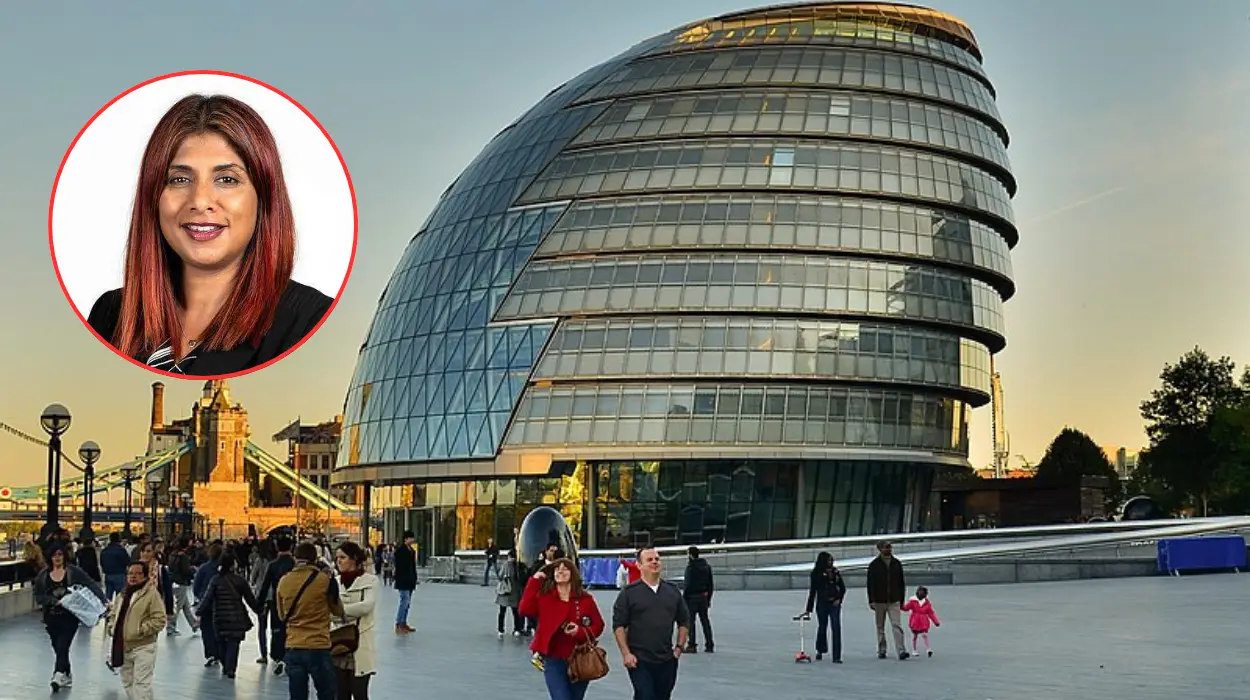Southwark (Parliament Politics Magazine) – Labour’s Policing and Crime spokesperson in City Hall Southwark opposes plans to scrap nearly half of London’s police station front counters, breaking party ranks.
Marina Ahmad, the Labour Party’s spokesman for Policing and Crime in City Hall, is the second party official to publicly criticize the Metropolitan Police’s decision.
The fact that the plans are seen as an operational decision for the Met Police, which means no public input is required to fully understand the depth of opposition to the closures, has drawn criticism from assembly members.
Southwark and Lambeth, where Ms. Ahmed is the Assembly Member, having kept their 254-hour counters in Brixton and Walworth, but 18 more locations throughout London are on the list to close.
Ms Ahmad said:
“The Met police should consult publicly on these proposals. It is essential that the Met police engage with Londoners, consult on proposals and seek views on how this might impact the same communities that they are working hard to rebuild trust with.
Front counters provide a visible and accessible public presence. They are often the first point of contact for vulnerable people including those fleeing domestic abuse, rough sleepers and people in crisis as well as those who do not have internet access.
While my colleagues and I recognise the very real financial pressures the Met is facing following 14 years of austerity, we do not believe this decision is acceptable.”
Announcing the closures ahead of an Extraordinary Public Meeting at City Hall last Wednesday, the Local Democracy Reporting Service (LDRS) last week exposed the beginning of the dissent among Labour’s ranks.
The closure of the Bethnal Green Police Station’s 24-hour front counter would have a “devastating” effect on the community, City and East Assembly Member Unmesh Desai told the LDRS.
Additionally, Labour MPs have advocated for the Met to reconsider their decision, claiming it will save £7 million at a time when the force is trying to fill a £260 million financial shortfall.
The front desk at Dagenham Police Station is “the last place to physically report crime” in her electorate, according to Margaret Mullane, the Member of Parliament for Dagenham and Rainham.
The Democracy Reporting Service was informed by Labour MP Danny Beale, who represents Uxbridge and South Rusilip, that the planned removal of the Hayes Police Station front desk is “disappointing and unacceptable.”
He added:
“As a Member of Parliament for the neighbouring constituency in Hillingdon, I know that many of my residents rely on the accessibility of the Hayes front desk as the only in person reporting mechanism in the Borough.
Since my election in July, I have met and spoken to residents and victims regarding the impact of crime in our borough. I am incredibly proud of the work this Government has done so far reverse the trend of historic cuts to the Metropolitan Police’s funding — with an additional £65 million when compared to the 2024-25 settlement, equating to 31.1% real terms increase. However, due to over a decade of underfunding, it is clear more support is needed.
The Metropolitan Police’s decision to close the front desk and thus reduce accessibility and availability to the community would be a significant step in the wrong direction.
Following the announcement, I have written to the Metropolitan Police Commissioner, Sir Mark Rowley, and the Mayor of London, Sir Sadiq Khan, to outline my significant concerns regarding this decision and asking them to think again.”
Last week’s Extraordinary London Assembly meeting was attended by his Deputy Mayor of Policing and Crime, Kaya Comer-Schwartz, rather than the Mayor of London.
Sir Sadiq defended plans to close the counters last month, claiming that “frankly speaking, nobody uses the front counters after office hours” in some places.
The Local Democracy Reporting Service did not receive a direct response when they asked the Mayor’s Office if he would step in and ask the Met Police to reconsider their choice.
Ms Comer-Schwartz told the Democracy Reporting Service:
“Nothing is more important to the Mayor and I than keeping Londoners safe and we are determined to continue doing all we can to support Sir Mark Rowley deliver a New Met for London, putting neighbourhood policing at the heart of communities.
The proposed changes to police counters are an operational decision for the Met – based on resources, funding and public demand for services.
After over a decade of cuts worth over a billion under the previous government, the Met is facing an extremely difficult financial situation. The Mayor and I are working closely with the Met to boost visible neighbourhood policing in our communities and are having ongoing discussions with Ministers and the Commissioner about the funding the Met needs to ensure we can continue building a safer London for everyone.”
A Met spokesperson told the Democracy Reporting Service:
“Just 5% of crimes were reported using front counters last year, with only 1% of these being made during the night. At the busiest front counter in London on average 15 crimes are reported a day – less than one an hour – and in the least busy, only 2.5 crimes are reported a day.
Londoners tell us they want to see more officers on our streets. The decision to reduce and close some front counters will save £7million and 3,752 hours of police officer time per month allowing us to focus resources relentlessly on tackling crime and putting more officers into neighbourhoods across London.”
How might breaking the pledge affect public trust in police reform efforts?
Citizens are less likely to view police as legitimate authorities when promises about maintaining community engagement and accessibility are broken. This weakens adherence to law enforcement directives and reduces cooperation with police investigations.
Perceived or actual failures to follow through on commitments fuel suspicions of unaccountability or hidden agendas, making communities skeptical of reform intentions and outcomes.
Broken pledges can deepen alienation among marginalized or vulnerable groups who often experience the greatest barriers to accessing police services, worsening historical distrust.


